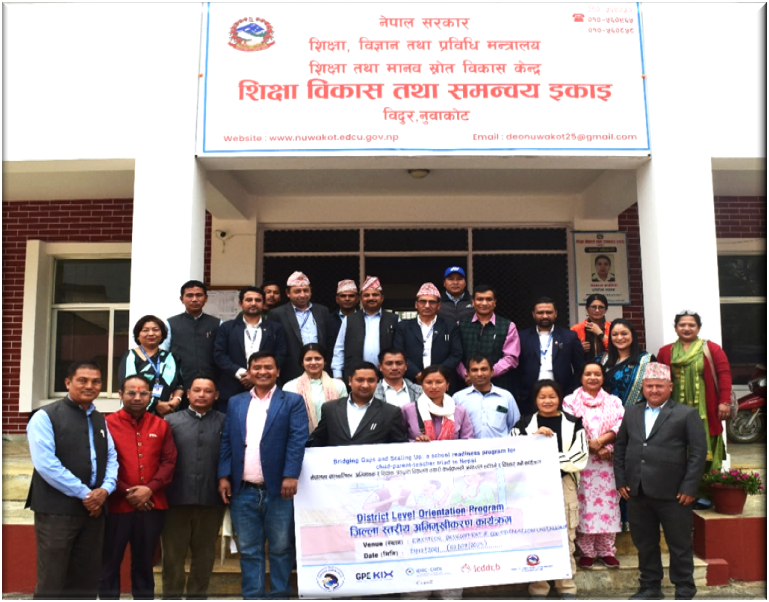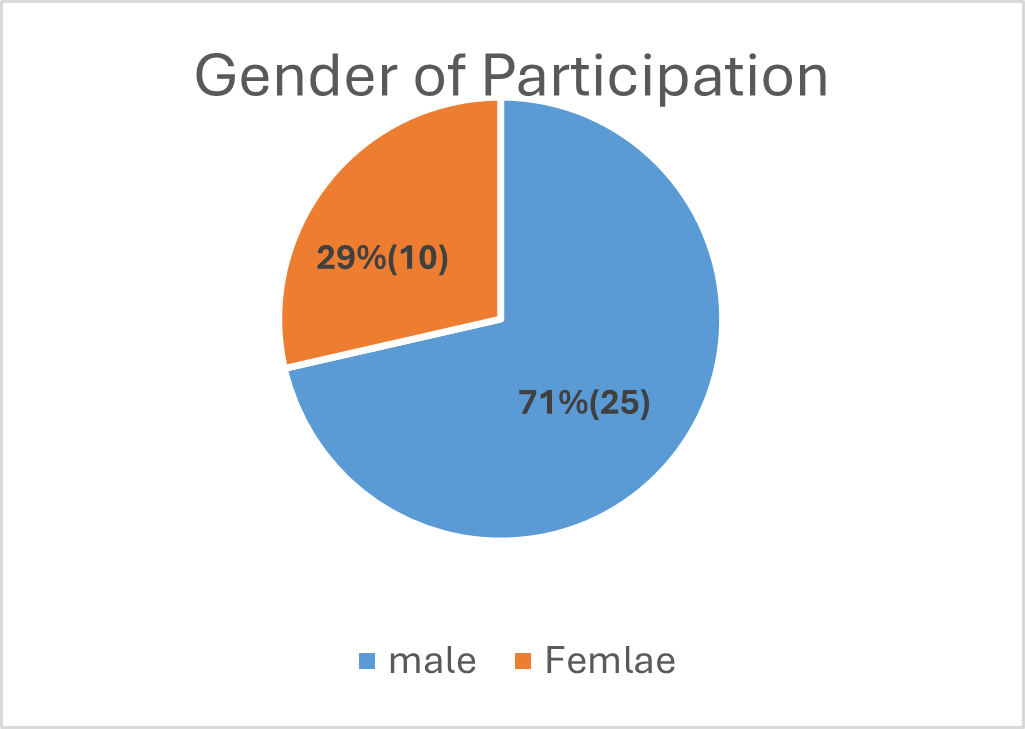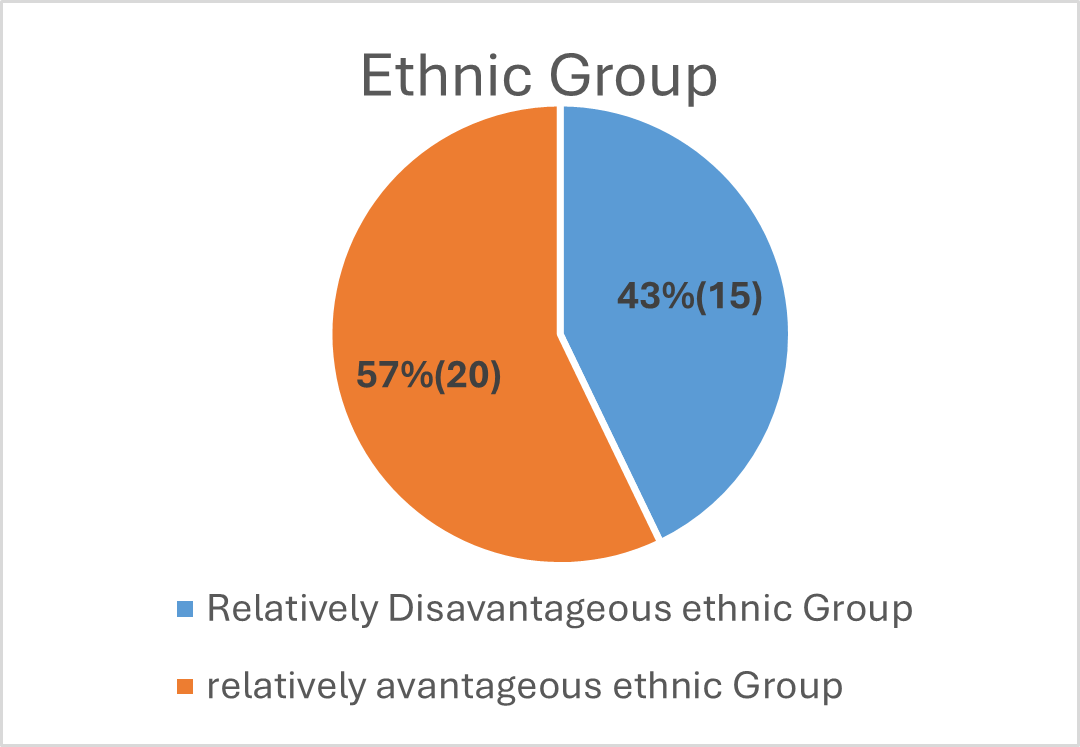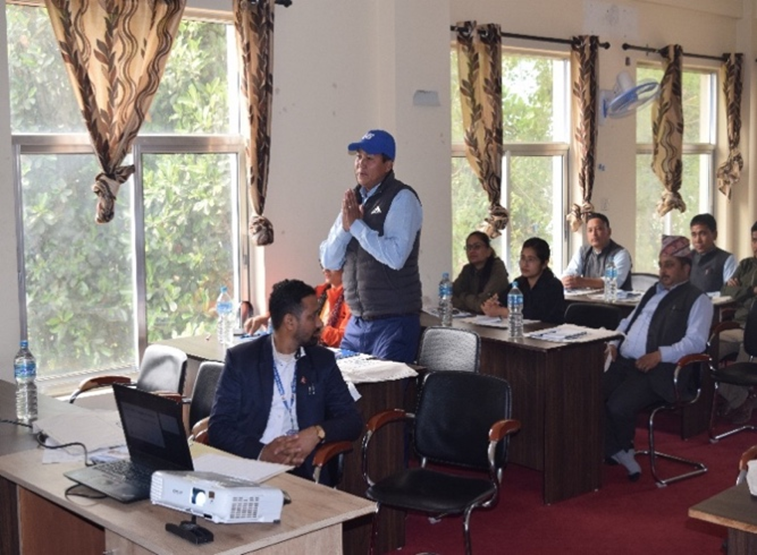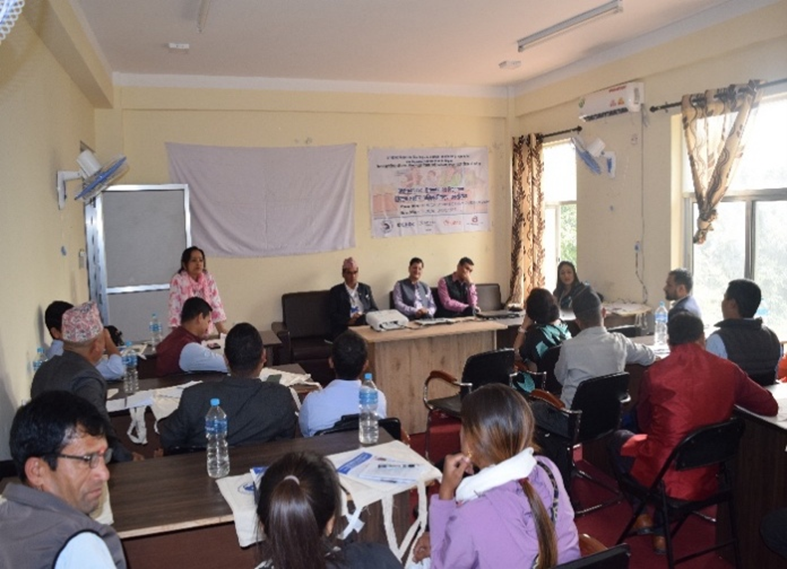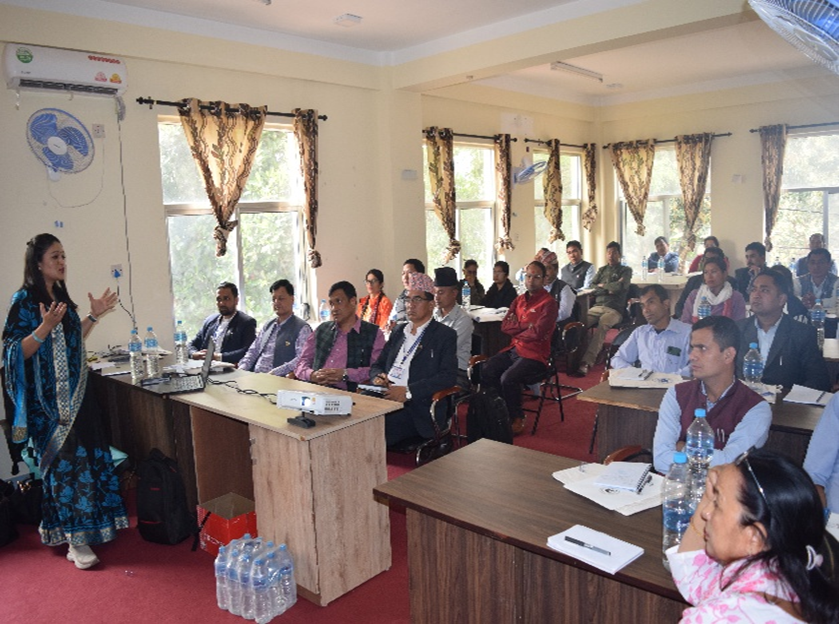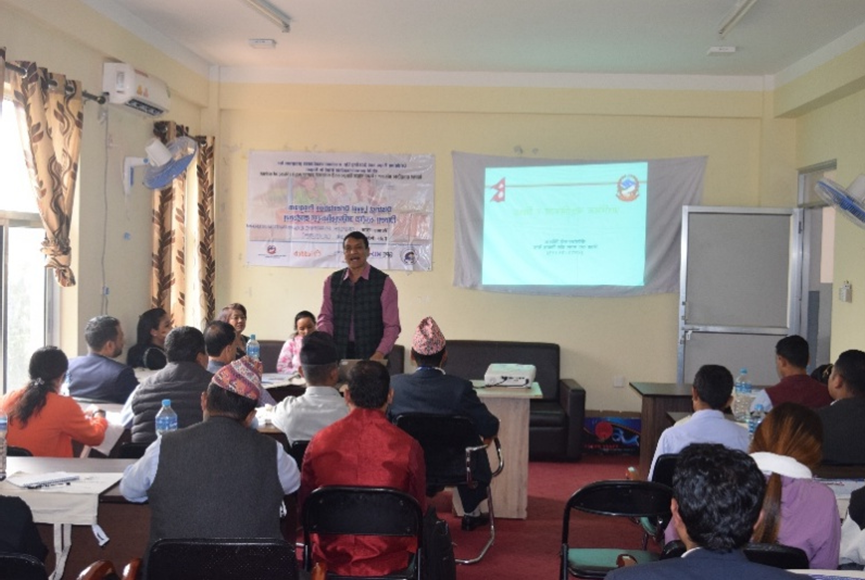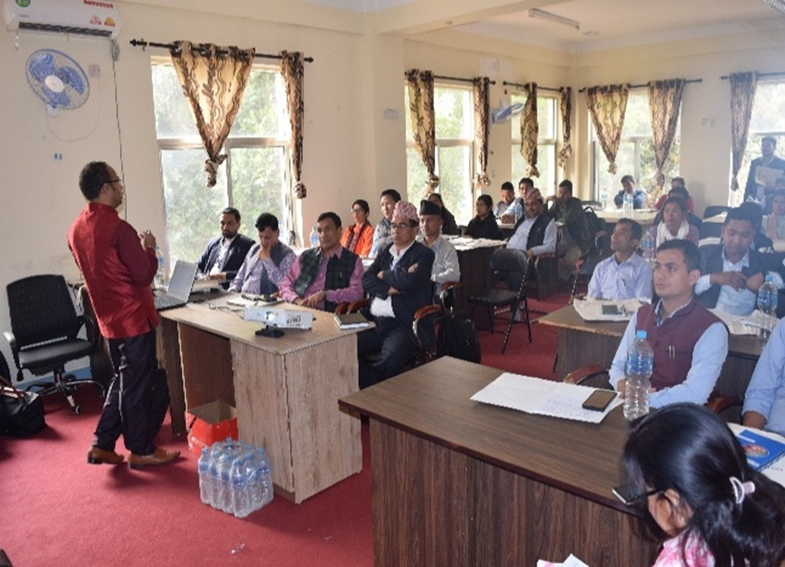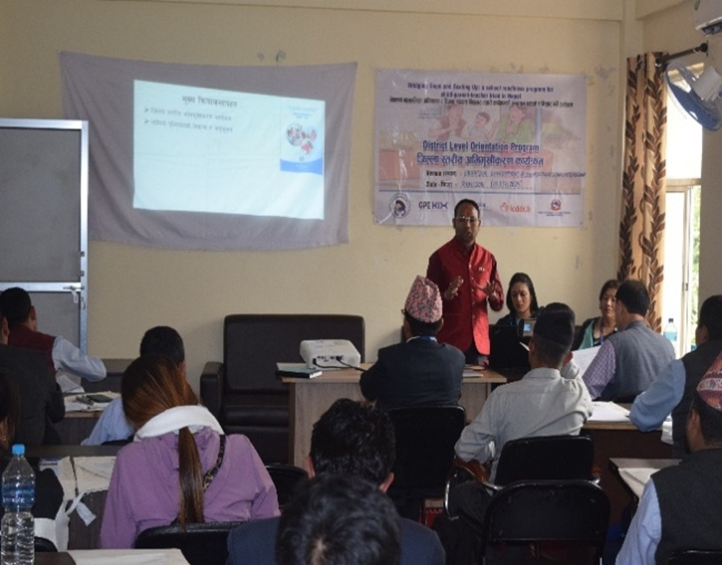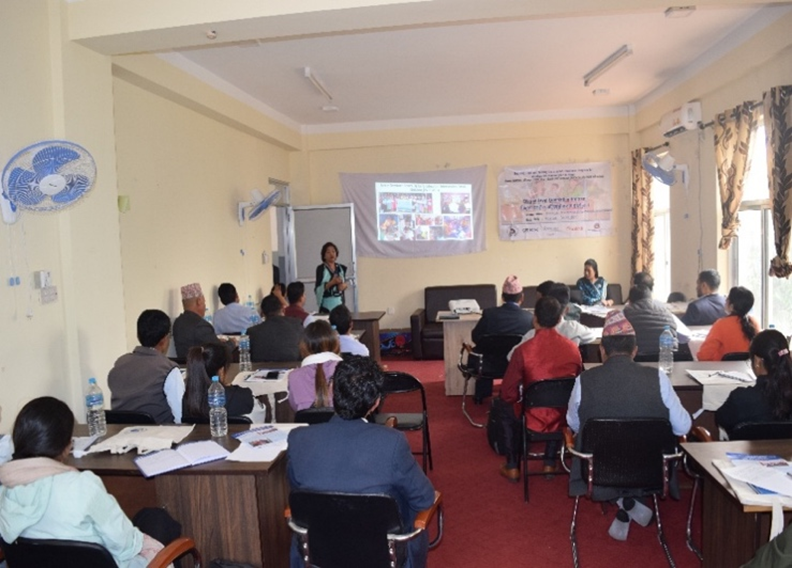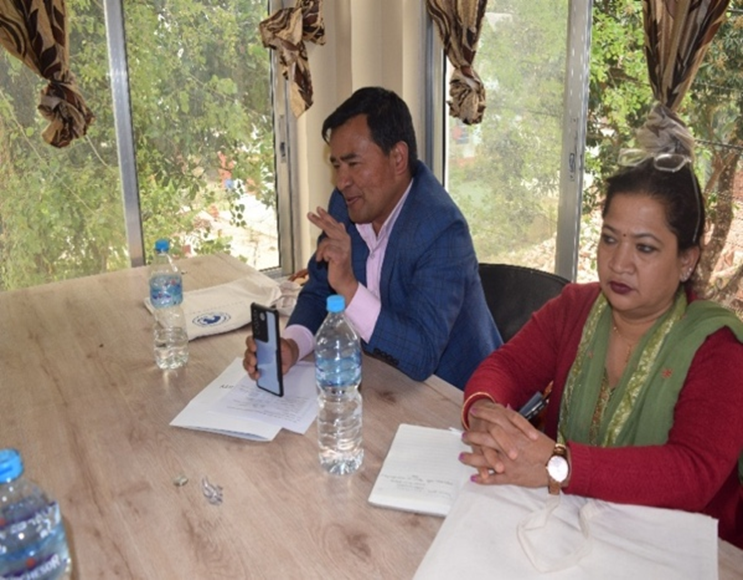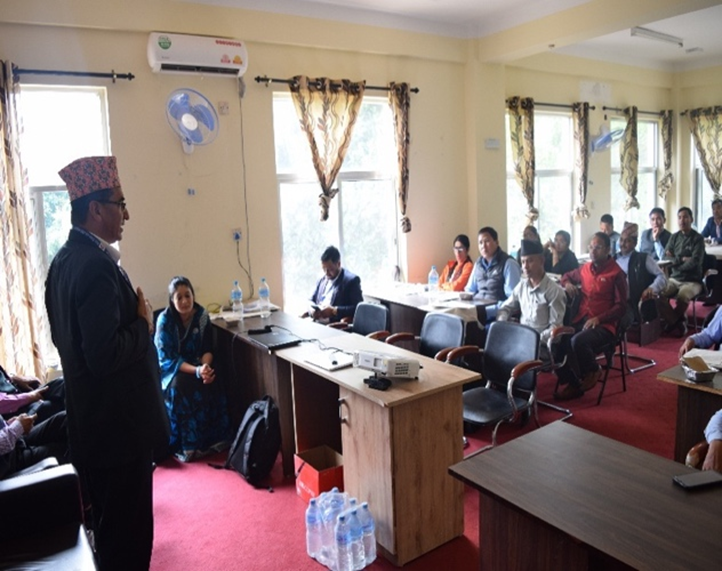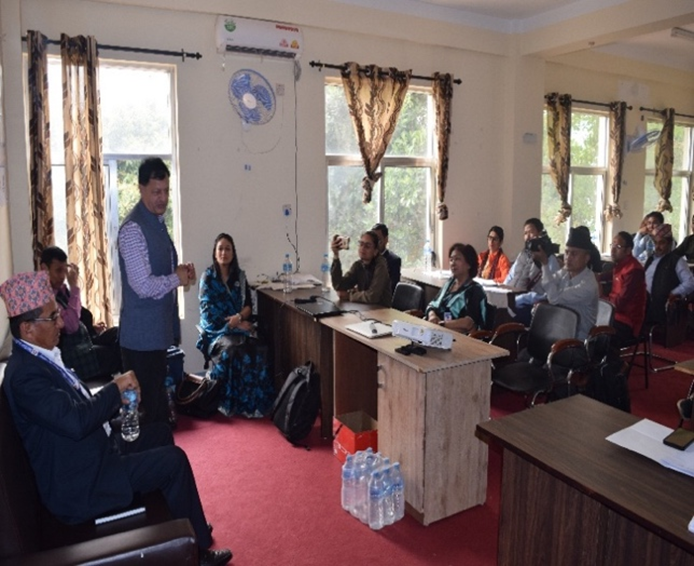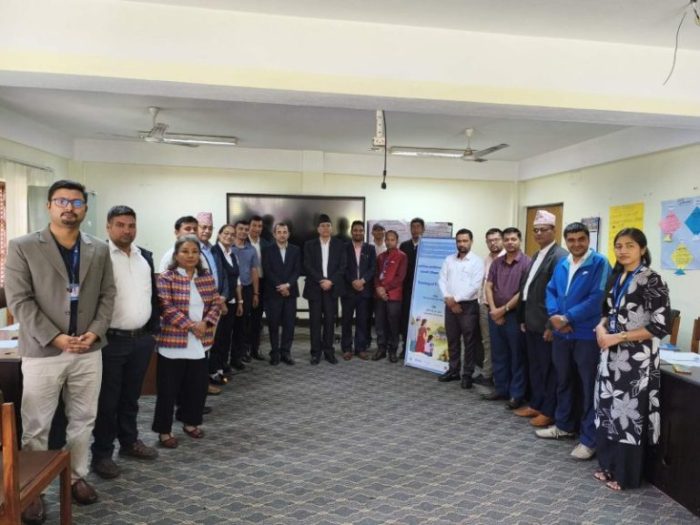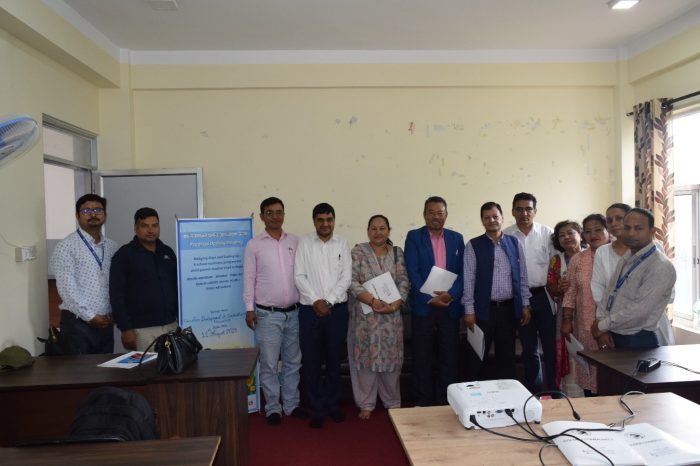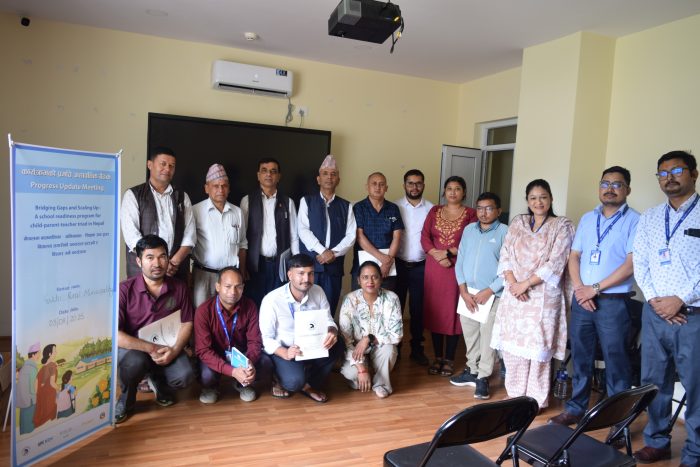Event summary
Date : 3rd April, 2025 (2081 Chaitra 21)
Venue: EDCU Hall Nuwakot
Duration: 2.30 hours
Key Participants:
- Education Development and Coordination Unit (EDCU) Chief
- Chairpersons and education officers of municipalities
- Headmasters and teachers from schools
General Objective:
To launch “Bridging Gaps and Scaling Up: A School Readiness Program for Child-Parent-Teacher Triad in Nepal” project at district level.
Specific Objectives:
1 Specific Objectives:
- Introduce Golden Community to the stakeholders at district and local levels
- Present the goals and activities of the program.
- Understand stakeholders’ perspectives regarding the program and address their queries.
Process:
Golden Community (GC), in coordination with the Centre for Education and Human Resource Development (CEHRD), organized a district-level orientation program in Nuwakot district. The half-day orientation lasted for 2.5 hours (from 10:30 AM to 1:00 PM). The program began with a formal inauguration, followed by the singing of the national anthem, introductions, a welcome speech, and presentations on ECD policies and standards by CEHRD, as well as information about the project by Golden Community. This was followed by a question-and-answer session and concluded with remarks from the chairpersons. Key participants in the orientation included Director of the National Training Center, CEHRD, and ECD Officer from CEHRD, Chairperson from Shivapuri Rural Municipality along with principals and education officers from selected schools of 4 municipalities in Nuwakot district. One-page information sheet and stationeries in a cotton bag were provided to the participants.
Outcomes:
- Stakeholders received detailed information about the activities of the project.
- Stakeholders were unanimous in their support for the project.
- Golden Community had an idea about the need of additional support for ECD class in the schools.
Fig 1: Ethnic and Gender distribution among participants
Almost one-third (29%) of the participants where female and there was nearly equal representation of ethnic group.
Introduction and Welcome
Introduction of the organization and project:
Overview of ECD in Nepal
Description of the project
Best practices of ENREAH
Question and answer session:
Conclusion

